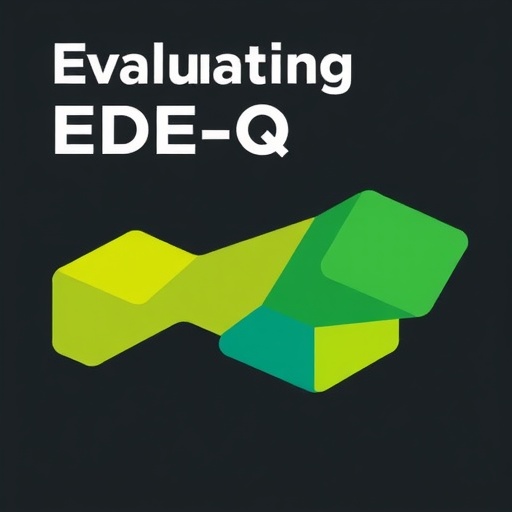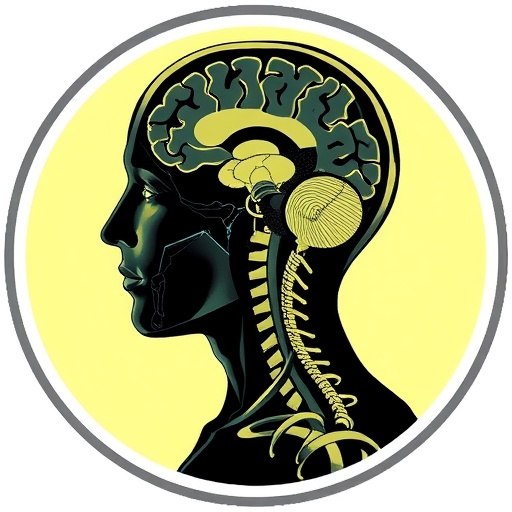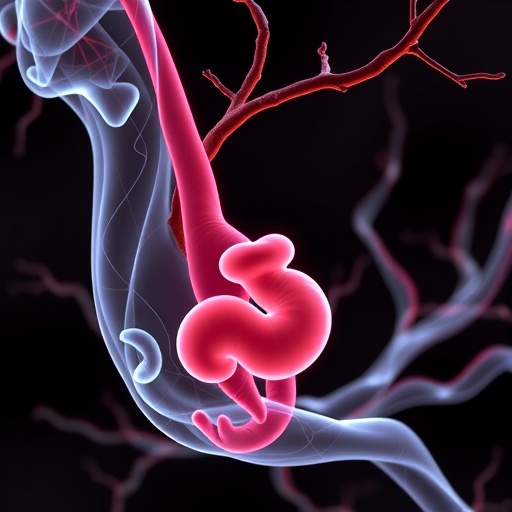PROTECT YOUR DNA WITH QUANTUM TECHNOLOGY
Orgo-Life the new way to the future Advertising by Adpathway
In a groundbreaking study published in the “Journal of Eating Disorders,” researchers have made significant strides in the validation of the Lithuanian version of the Eating Disorder Examination Questionnaire (EDE-Q). This rigorous undertaking, conducted by prominent scholars, including Adler, BreidokienÄ—, and ÄŒekuolienÄ—, sheds light on the prevalence and psychological impacts of eating disorders among young adults in Lithuania. As mental health and wellness gain paramount attention in contemporary discourse, this research emerges as a vital contribution to clinical practice and public health policy.
The EDE-Q has long been viewed as a gold standard in eating disorder assessment, praised for its efficacy in identifying various eating disorder symptoms. The development of its Lithuanian adaptation presents an opportunity to explore the sociocultural factors that may affect eating behaviors and perceptions in this specific demographic. In a population that has been historically understated in terms of mental health research, this validation study endeavors not just to broaden the existing literature but also to facilitate more effective interventions designed for the Lithuanian youth.
Using a community sample of young adults, researchers conducted a comprehensive evaluation of the EDE-Q’s reliability and validity in this newly translated context. The meticulous processes included both qualitative and quantitative methodologies, ensuring that the data represented a rich array of experiences and conceptualizations surrounding eating disorders. Through rigorous statistical analyses, the findings indicate that the Lithuanian EDE-Q can reliably distinguish between individuals who exhibit disordered eating patterns and those who do not.
One of the core aspects of this research involves addressing cultural nuances that can influence the experience of eating disorders. As the study highlights, Western models of eating disorders may not always apply uniformly across different cultures, leading to the necessity for localized adaptations of screening tools. The research team emphasized the importance of understanding the young adult population in Lithuania—a demographic heavily influenced by global media portrayals of body image alongside distinct local cultural expectations.
The implications of validating the EDE-Q extend far beyond academic circles. Effective screening is critical for early intervention, which can dramatically alter the trajectory of eating disorders. By providing mental health professionals with a culturally appropriate diagnostic tool, the researchers empower clinicians to identify at-risk individuals and offer timely support. This process is crucial in a world where eating disorders can lead to severe health consequences, including but not limited to chronic medical conditions, psychological distress, and in extreme cases, mortality.
Furthermore, the research underscores the importance of ongoing education regarding eating disorders. As the stigma associated with mental health illnesses continues to pose barriers to seeking help, it becomes imperative that initiatives include community outreach and awareness campaigns. The findings from this study will undoubtedly contribute to local and national strategies aimed at enhancing mental health literacy within the community, encouraging young individuals to recognize symptoms in themselves and their peers.
The validation study also opens up a dialogue about preventive measures that can be enacted from an early age. As society grapples with increasing rates of eating disorders, both clinicians and educators must remain vigilant in promoting healthy body image and eating habits. This can be fostered through educational programs in schools that focus on resilience, self-esteem, and the impact of societal pressures on personal health. By integrating such discussions into the educational curricula, there is potential to mitigate the prevalence of these disorders before they take root.
As mental health research continues to evolve, studies such as this one are indispensable. They serve not only as scholarly contributions but also as catalysts for change within communities. As public awareness of eating disorders increases, so does the responsibility of researchers and clinicians to ensure that all populations have equitable access to health resources. The successful validation of the Lithuanian EDE-Q not only addresses a gap in the literature but also enhances healthcare equity for Lithuanian youth.
Ultimately, the ongoing journey towards understanding and combating eating disorders is multifaceted. Each insight gained from studies like this adds depth to the collective knowledge and illuminates pathways forward in treatment and prevention. The tenacity of the research team highlights the unwavering commitment to improving the lives of those affected by eating disorders.
In summary, the validation of the Lithuanian EDE-Q is a significant achievement that promises to improve the landscape of mental health care in Lithuania. It stands as a powerful reminder of the vital intersection between culture and clinical practice, providing a template for similar research endeavors in other countries. As the mental health sector moves forward, this research will undoubtedly guide future initiatives in the identification, understanding, and management of eating disorders.
The study represents a crucial step towards fostering effective communication between health services and communities affected by eating disorders. With diverse and tailored approaches in place, there is hope for mitigating the adverse effects of these conditions among vulnerable populations. Attention to cultural context is essential, ensuring that tools like the EDE-Q are not only validated but also widely implemented.
By focusing on holistic approaches that take into account various cultural dynamics, mental health professionals can bridge gaps in knowledge and support systems. This research is just the beginning of a broader conversation aimed at creating a healthier and more informed society, particularly among young adults grappling with the challenges posed by eating disorders. As understanding expands, so too does the potential for impactful change in mental health care.
Strong advocacy for mental health initiatives, bolstered by rigorous studies and community engagement, creates an atmosphere conducive to healing and understanding. This study sets a crucial precedent, paving the way for future research and clinical practices centered around the unique needs of local populations.
In conclusion, the validation of the Lithuanian EDE-Q marks a pivotal moment in the quest for comprehensive eating disorder assessment. Armed with this newly validated tool, mental health professionals can make meaningful strides towards fostering healthier communities. Through continued research, education, and advocacy, a brighter future awaits for young Lithuanians struggling with eating disorders.
Subject of Research: Validation of the Lithuanian Eating Disorder Examination Questionnaire (EDE-Q) in a community sample of young adults.
Article Title: Validation of the Lithuanian eating disorder examination-questionnaire (EDE-Q) in a community sample of young adults.
Article References:
Adler, A., BreidokienÄ—, R., ÄŒekuolienÄ—, D. et al. Validation of the Lithuanian eating disorder examination-questionnaire (EDE-Q) in a community sample of young adults.
J Eat Disord 13, 195 (2025). https://doi.org/10.1186/s40337-025-01378-9
Image Credits: AI Generated
DOI:
Keywords: Eating disorders, EDE-Q, Lithuanian adaptation, mental health, young adults, validation study, psychological assessment.
Tags: clinical practice in mental healthcommunity sample researchEating disorder assessment in Lithuaniaeating disorder examination questionnaire adaptationEDE-Q validation studyLithuanian eating disorder prevalencemental health interventions for youthpsychological impacts of eating disorderspublic health policy on eating disordersqualitative and quantitative methodologiessociocultural factors in eating behaviorsyoung adults mental health


 7 hours ago
11
7 hours ago
11





















 English (US) ·
English (US) ·  French (CA) ·
French (CA) ·